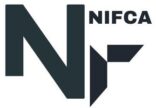In the data-driven world of today, companies produce enormous volumes of data daily. It can be hard to manage, analyze, and secure this data, particularly with traditional systems that frequently have trouble processing data in real-time, scaling, and preserving security. Rdatao is involved in this situation.
Rdatao is a state-of-the-art platform that uses blockchain technology, real-time data processing, artificial intelligence (AI), and machine learning (ML) to solve these urgent data issues. These features enable companies to make well-informed decisions more quickly and optimize their data management systems.
This article explores Rdatao’s features, advantages, and uses in further detail, describing how it changes how companies manage data and why it’s becoming more popular across sectors. You will have a thorough understanding of Rdatao’s formidable powers and how it might hold the key to releasing your data’s full potential by the end of this essay.
Key Features of Rdatao
Rdatao is a next-generation platform for businesses because it provides a number of strong features. Let’s examine these characteristics in greater depth.
Real-Time Data Processing
Batch processing is a common feature of traditional data management systems, which can lead to out-of-date data and delayed insights. In contrast, Rdatao processes data as it is imported in real time. This means that companies may make faster, more accurate judgments by analyzing data as it is received.
Real-time data processing, for example, makes it possible to identify market movements instantly in the finance sector, allowing traders and investors to react quickly to changes in the market. Similarly, real-time data can improve treatment outcomes in the healthcare industry by enabling doctors to instantly access and analyze patient information.
AI and Machine Learning Integration
Rdatao’s capacity to provide actionable insights is based on artificial intelligence and machine learning. Rdatao can analyze enormous volumes of data and spot trends that might not be immediately apparent thanks to its AI-driven analytics. As a result, forecasts that spot fraud in financial transactions, predict equipment problems, or forecast sales patterns are more accurate.
Additionally, routine tasks are automated by machine learning, giving teams more time to concentrate on higher-level strategic work. For instance, Rdatao eliminates the requirement for human involvement in data preparation by automatically cleaning and organizing data. Increased productivity and the capacity to concentrate on making decisions rather than juggling data are the outcomes.
Blockchain Security
In a time when data breaches and cyberattacks are common, businesses place a high premium on data security. Rdatao employs blockchain technology to safeguard data in a way that traditional methods just cannot match. Because blockchain technology is decentralized, data is not kept in one place, which lowers the possibility of data compromise.
Since every data transaction is documented on an immutable ledger, data cannot be changed or tampered with once it is introduced into the system. This preserves sensitive data and ensures data integrity. Blockchain offers a crucial layer of security for sectors like healthcare, finance, and law where data security is crucial.
Scalability
Data grows along with businesses. Performance problems and slowdowns are frequently caused by traditional data management systems’ inability to handle growing data volumes. Rdatao, on the other hand, is built to grow horizontally, meaning that enterprises can increase resources as needed without a reduction in performance.
It can manage the expanding data requirements of both tiny startups and major corporations because to its horizontal scalability. Businesses can concentrate on growth without worrying about system constraints because to Rdatao’s ability to adapt and maintain flawless performance whether working with terabytes or petabytes of data.
Data Aggregation and Organization
It is excellent at combining data from several sources, such as transactional, sensor, or customer data, and arranging it into a single structure. By pulling data from disparate databases, APIs, and third-party services, Rdatao provides a single, unified dataset that’s easier to analyze.
Data analysis is made easier by this well-organized structure, which also lessens the need for laborious manual data preparation. With all the information in one location and in a manner that can be used, companies can concentrate on finding patterns, gaining insights, and advancing their business plans.
Benefits of Using Rdatao
Rdatao has many advantages that can revolutionize how businesses operate. Let’s investigate how these characteristics result in practical benefits.
Enhanced Decision-Making
Businesses can swiftly make data-driven decisions thanks to Rdatao’s real-time data processing and AI-driven analytics. Retail companies, for instance, can improve conversion rates by modifying their marketing campaigns in response to real-time consumer behavior. Better health outcomes can result from healthcare companies using real-time data to make important decisions about patient care.
Businesses can get a competitive edge in their particular sectors by using predictive analytics, which is another benefit of integrating AI.
Improved Efficiency
The automation features of Rdatao greatly increase efficiency by streamlining repetitive data tasks. Machine learning algorithms can automate manual tasks like organizing, cleaning, and reporting data. Employees can devote more time to more strategic duties as a result of the decreased requirement for human interaction.
As a result, production is increased, expenses are reduced, and the time to market for goods and services is shortened.
Robust Security
Modern data platforms place a high premium on security, and Rdatao’s usage of blockchain technology guarantees the best possible protection. Because blockchain technology is decentralized, it is practically impossible for hackers to change or tamper with data. This is especially important for sectors like healthcare and banking where regulatory compliance is essential.
Additionally, Rdatao offers an audit trail that guarantees accountability and transparency by recording each transaction on an immutable ledger, hence enhancing security.
Industry Adaptability
It is adaptable and can be tailored to many industries’ requirements. It is appropriate for usage in a number of industries due to its strong security features, real-time data processing, and AI capabilities:
Healthcare: It facilitates real-time diagnostics, simplifies hospital management systems, and helps secure patient data.
Finance: It can be used by financial organizations for real-time trade analytics, risk management, and fraud detection.
Retail: Retailers can improve inventory management by analyzing customer behavior and streamlining their supply networks.
Use Cases and Applications
Rdatao’s flexibility allows it to be applied across a wide range of industries. Here are some real-world examples:
Finance: Rdatao is a real-time transaction monitoring tool that banks and other financial institutions can use to make sure that any suspicious activity is identified right away. Additionally, the blockchain connection guarantees data integrity and transparency in financial records.
Healthcare: Hospitals can utilize AI to find health patterns by combining patient data from various sources. To give more individualized care, this data can be safely shared with several departments.
Retail: Retailers can use Rdatao’s real-time data to modify their promotions and price plans in response to current market conditions. Improved client targeting and inventory forecasting are made possible by AI-driven analytics.
Rdatao’s Competitive Edge
Rdatao has a number of clear benefits over conventional data management solutions.
Real-Time Processing: Large datasets may take hours or even days to handle using traditional techniques. Businesses may make prompt decisions based on the most recent data thanks to Rdatao’s real-time processing.
AI and ML Integration: Rdatao employs sophisticated machine learning algorithms to find hidden patterns and produce predicted insights, whereas many traditional systems rely on simple data analysis.
Blockchain Security: Data security and integrity are guaranteed by Rdatao’s blockchain, while traditional systems are more susceptible to data breaches.
Rdatao leads the way in contemporary data management solutions thanks to its unique blend of speed, security, and scalability.
Conclusion
Rdatao is transforming data management through the integration of blockchain technology, AI-driven analytics, and real-time data processing. With its capacity to secure sensitive data, improve decision-making, and scale, Rdatao is rapidly emerging as a crucial tool for companies trying to realize the full value of their data.
Platforms like Rdatao will be essential in helping firms handle the challenges of contemporary data management as the value of data continues to increase. Businesses can improve operations, obtain a competitive advantage, and make quicker, more informed decisions by implementing Rdatao.
FAQs
What industries can benefit from Rdatao?
It can be applied to a wide range of sectors, such as manufacturing, retail, healthcare, and finance. It provides meaningful insights, streamlines operations, and protects sensitive data in various industries.
How does Rdatao ensure data security?
It stores data in a decentralized, unchangeable ledger using blockchain technology to protect it. By doing this, data integrity is guaranteed and unwanted access or changes are avoided.
Can Rdatao handle large volumes of data?
Indeed, It can accommodate larger data loads without sacrificing performance because it is made to scale horizontally. Because of this, companies of various sizes can use it.
How does Rdatao’s AI improve business decision-making?
Large volumes of data are analyzed by Rdatao’s AI to find patterns and forecast future events. Businesses are able to use data-driven insights to make proactive decisions as a result.
Is Rdatao easy to integrate with existing systems?
Businesses may seamlessly integrate Rdata’o with their current databases, APIs, and third-party services because to its strong integration features.



